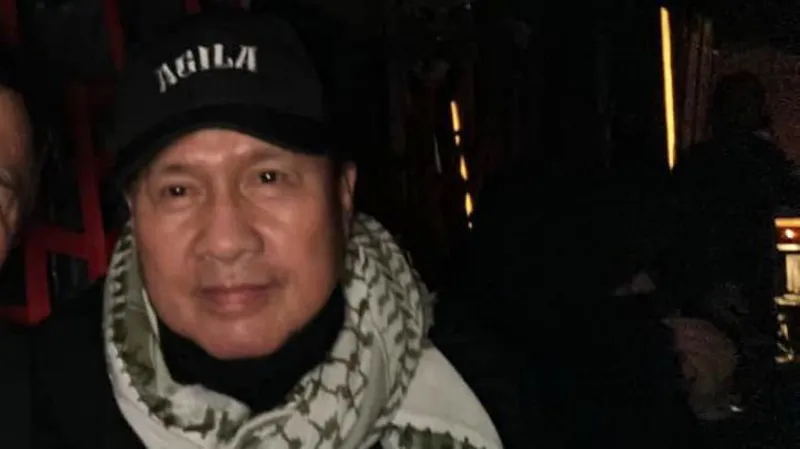An influential Filipino pastor, wanted in both the Philippines and the US for child sex trafficking, has been arrested, bringing an end to a two-week standoff between police and his followers.
Authorities had been attempting to apprehend Apollo Quiboloy, who claims to be the “Appointed Son of God,” during a raid on his expansive church compound.
Violent clashes erupted between thousands of his followers and anti-riot police, with one church member suffering a fatal heart attack during the operation.
Quiboloy, whose church, the Kingdom of Jesus Christ (KOJC), claims to have seven million followers, has denied all the charges.
In 2021, the US Department of Justice (DOJ) charged Quiboloy with child sex trafficking, fraud, coercion, and bulk cash smuggling.
The US Federal Bureau of Investigation (FBI) accused him of trafficking girls and women from the Philippines to the US, where they were forced to solicit funds for a fraudulent charity.
The FBI also alleged that Quiboloy required his female assistants, known as “pastorals,” to engage in sexual activity with him.
Despite these accusations, Quiboloy rose to national prominence as the spiritual adviser to former president Rodrigo Duterte.
However, his fortunes shifted after Duterte left office in June 2022, with Filipino authorities charging him with child abuse, sexual abuse, and human trafficking, leading to the issuance of an arrest warrant.
‘Peaceful surrender’
For two weeks , thousands of policemen have been engaged in a standoff with Mr Quiboloy’s followers, as they raided his 30-hectare (75-acre) KOJC compound in Davao. They said Mr Quiboloy was hiding in an underground bunker based on the sound of heartbeats detected by surveillance equipment.
The complex is home to some 40 buildings, including a cathedral, a school and even a hangar.
Mr Quiboloy’s lawyer said the two-week-long manhunt had turned the KOJC compound into a “police garrison”, with one of their cathedrals “desecreated”.
On Sunday, Mr Quiboloy surrendered peacefully after he was given a 24-hour “ultimatum”, said Col Jean Fajardo, the national police spokesperson.
Mr Quiboloy’s lawyer, Israelito Torreon, said his client surrendered “because he does not want the lawless violence to continue to happen”.
The circumstances of his arrest were not immediately clear, except that it happened in the compound.
The regional police chief, Brig Gen Nicolas Torre, said a “concerted effort of everyone involved” led to the arrest.
Mr Quiboloy and four others who were arrested with him were flown to national police headquarters in the capital Manila where they are currently detained.
Before his arrest, Mr Quiboloy said that the “devil” was behind his legal woes.
He has also said that he does not want the FBI to “meddle” in his case.
Speaking to reporters on Monday, Mr Marcos said the Philippines was not considering extraditing Mr Quiboloy for now.
The standoff at the KOJC has taken place as a very public falling out between the Marcos and Duterte political families has unfolded.
The US DOJ sought his arrest a few months before Mr Duterte handed power to current President Ferdinand Marcos Jr, but it was only during Mr Marcos’ term that authorities started pursuing the pastor.
While Mr Quiboloy was in hiding, Mr Duterte said he knew where he was but would not tell the police.
Mr Duterte’s daughter, Vice-President Sara Duterte also criticised police pursuing Mr Quiboloy of applying “questionable” force.
Private jets and biker jackets
Mr Quiboloy set up the KOJC in Davao in 1985, after hearing God whisper to him “I will use you” while attending an event by American pastor Billy Graham in South Korea in 1973, says the organisation.
When he is not in Davao, he has been seen travelling on his private jet.
He delivers his sermons from a glass podium that is set against giant photographs of his lush hilltop estate called the “Garden of Eden Restored”.
These are broadcast on his own TV, radio and social media network.
Outside of his long-standing ties with the Duterte’s, Mr Quiboloy grew his political influence by endorsing candidates to his followers during elections, a common practice for religious leaders in the country where politics is based on patronage instead of ideology.


